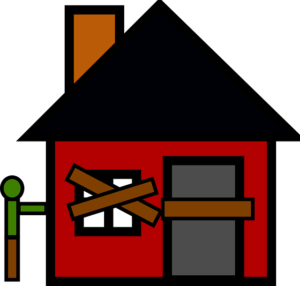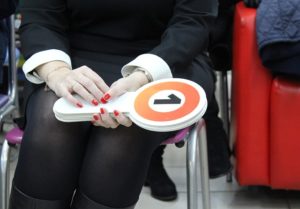Buying a Foreclosure
Real estate investing is on the rise as a great way to make income on the side or as a primary source. Your MLS isn’t your only option though when it comes to looking at homes to buy. Real estate auctions have also been growing in popularity as new technology and advances make it easier for newer investors to also partake. As long as you do a little research beforehand, buying from auction should be a breeze. It is also one of the easiest ways of buying a foreclosure.
Properties Sold at an Auction
Technically any type of property or asset could be sold at an auction. Most home auction though is the ones most likely heard about due to the housing crisis, foreclosures. According to the site RealtyTrac, as of January 2018, there were close to 571,000 homes in some stage of foreclosure in the United States. Buying a foreclosure through auction has been a growing trend for the past few years.
Real estate auctions are split into two groups: Live (in-person) and online. Online has become more and more popular as people grow more accepting of making major purchases online. No matter which route is chosen through buying real estate is still a tough and complicated process. In many cases, contracts, escrow, disclosure documents and other paperwork is still required by law.
Buying a Foreclosure Property at Live Auctions
Almost all foreclosure auctions are conducted live in front of county courthouses. In many states, they only require a publicly accessible space, like a hotel ballroom or a convention center. In larger venues, many foreclosure properties can be auctioned off in one day. Live foreclosure auctions are no cost for the general public to attend to make sure that a home being foreclosed upon receives the highest possible recovery for the bank or lender and a small deficiency for the borrower. All the general public is allowed to attend but to actually be able to bid you will need to register. In most cases in the states, you will have to be able to prove that you have the sufficient amount of funds to pay for the property in full. In a few states, there is an exception which allows an auction day deposit and full payment the following day.
To participate in a live auction you want to follow these few steps:
- Find a Foreclosure Auction Near You: Using online resources can help you find foreclosure auctions in areas you want to buy. Sites such as RealtyTrac or com are great tools. You can view specific county foreclosure sale data either online at the county courthouse, or from third-party foreclosure sales agents often called a “trustee”. Using a local real estate agent or broker can help you identify and find these properties but by law, there is no agent commission on these sales.
- Get Informed: Seeking independent advice from a real estate attorney or a knowledgeable real estate agent can help you be sure that you understand all legalities and necessary documents. Being informed and ready for the information, document, and transaction details will all help make the sale go smooth.
Other key information to research includes researching the estimated market value of the property, how much the borrower has left to pay the mortgage, and whether there are any liens against the property. Liens are used by creditors to make sure anything that they are owed for on the home is paid in full. If you are the winning bidder, you may have to pay off these liens. Hiring a title company or real estate attorney to run title searches on properties you’re interested in bidding on can help save you time and frustration later when buying a foreclosure.
- Check out the Property: If possible, take a drive and check out the property you are interested in beforehand. This will let you be able to access the home’s condition from the outside. Usually, homes in the foreclosure process are occupied so make sure to no trespass or disturb the occupant! You can find yourself in legal trouble if you do.
Bidding on a foreclosure, the property is always sold “as-is”. This means you are unaware of the condition of the property inside until you take possession. At times extra, unexpected repairs could end up costing you thousands of dollars. Keeping this in mind can help you find a comfortable number to bid while still leaving room for upgrades and renovations. A good rule of thumb to keep in mind when searching for properties is that the exterior condition of a home is a pretty good indication of the interior. So, a home with fantastic curb appeal is probably in great condition inside.
- Figure Out Your Finances: In most foreclosure auctions cash, bank money order or cashier check are accepted for payment. In nearly every state also you will have to pay the full amount immediately following the auction of the property. A few states differ allowing you to put down a down payment before paying the rest off in full within a certain timeframe.
County foreclosure auctions often require advance deposits. The deposit amount varies across municipalities, but generally runs between 5-10% of the expected final bid amount of the property.
- Confirm Auction Details: Be sure to follow up on the details of the auction including the location and time. It is not uncommon for foreclosure auctions to be postponed or even canceled. The reasoning for a canceled auction can be a variety of reasons including that the borrower has come up with the money to pay the lender the amount owed, they obtain a loan modification, or they sell the property as a short sale. Auctions can also be postponed for a variety of reasons including that the bank or lender was not able to compile the proper documentation on time or the owner requested more time to complete a short sale.
- Attend and Bid: Once re-confirming the auctions location and start time be sure to check in at least one hour before the auctions start. Get an Auction Bidder Card and raise is when the auctioneer announces a price that you are prepared to pay as your winning bid. If you win the auction payment is due immediately unless you attend an auction in the few exception states. Once the amount is paid in full you will complete a certificate of sale or an execution of sale receipt, deed upon sale and IRS Form 8300, subject to state-specific laws.
- Get Your Certificate: Once the auction is complete you will get your certificate of sale immediately, but the actual certificate of title may take as much as 10 days to complete. During that time the original owner may file an objection to the sale and pay the amount owed in full to retain their rights to the property. That is why it is generally safer and smarter to wait to receive this certificate before doing any work.
Buying a Property in an Online Auction
In an online auction having to meet in a physical place is not necessary. You can join and bid in an auction anytime you have an internet connection and can occur 24 hours a day over the course of days or weeks instead of one single day.
Online auctions also allow you to bid on many different types of properties including short sales, non-distressed, bank-owned homes, and commercial property and notes. The steps for buying a foreclosure through online auction are like those of a live auction:
- Find a Property: With online auctions, you have the ability to search and bid on properties all over the country. You can even bid on multiple properties at once.
- Research: Most online auction websites include loads of information on each property. You can see maps, estimated market values, and any liens. Be sure to read it all! Reaching out to a real estate agent or broker, real estate attorney or another experienced investor would be a great tool to help with independent advice and title search. Unlike live foreclosure auctions also, most homes sold in online auctions do have an agent commission which allows a real estate agent to get paid for their services. If the property is local and it is possible to be sure to visit the property. Some real estate agents may even offer open houses; if so, bring a contractor with you to help assess what repairs may be needed.
- Register: Most online auctions require that you register and submit a refundable deposit in the form of a credit card authorization. This is simply to ensure that all bidders are serious and motivated. If you lose the auction all deposits are returned.
- Prepare: If you win the auction you can help speed up the closing process by gathering the following the documents:
- Proof of funds or financing information. Although most online auction sites don’t provide financing, many homes are available with financing available.
- Entity documents if you are bidding under a company name or partnership
- Earnest money deposit, which is usually 5% of the total purchase price due one business day after the auction.
- If You Won: If you won the auction, most sale processes do not take long to complete. Make sure that whichever site you participate in their auction that you get all documents and needed papers submitted in time. Make sure to look closely at the property page of each property you are interested in, as some may have what is known as “buyers premium” Buyers premium is a fee charged by the auction company for conducting the sale. The amount can vary but it is usually 5% of the total cost, though many properties do not have this as the bank or seller has already agreed to pay this fee from their proceeds of the sale.
It is a good idea to purchase title insurance because it can protect you from any unknown liens transferred on to you. Getting professional help from a real estate agent or brokerage, for example, is a great way to make sure that your auction sale goes smoothly and that you have all your needed documentation and paperwork. We here at 407Foreclosure Help deal with foreclosures every day and have the knowledge and skills to help you. We would love to be in contact if you or someone you know is in the need of the assistance when selling or buying a foreclousre. Go here to contact us or call us now at (321) 430-1412




1 thought on “Buying a Foreclosure: Auctions how do they work?”